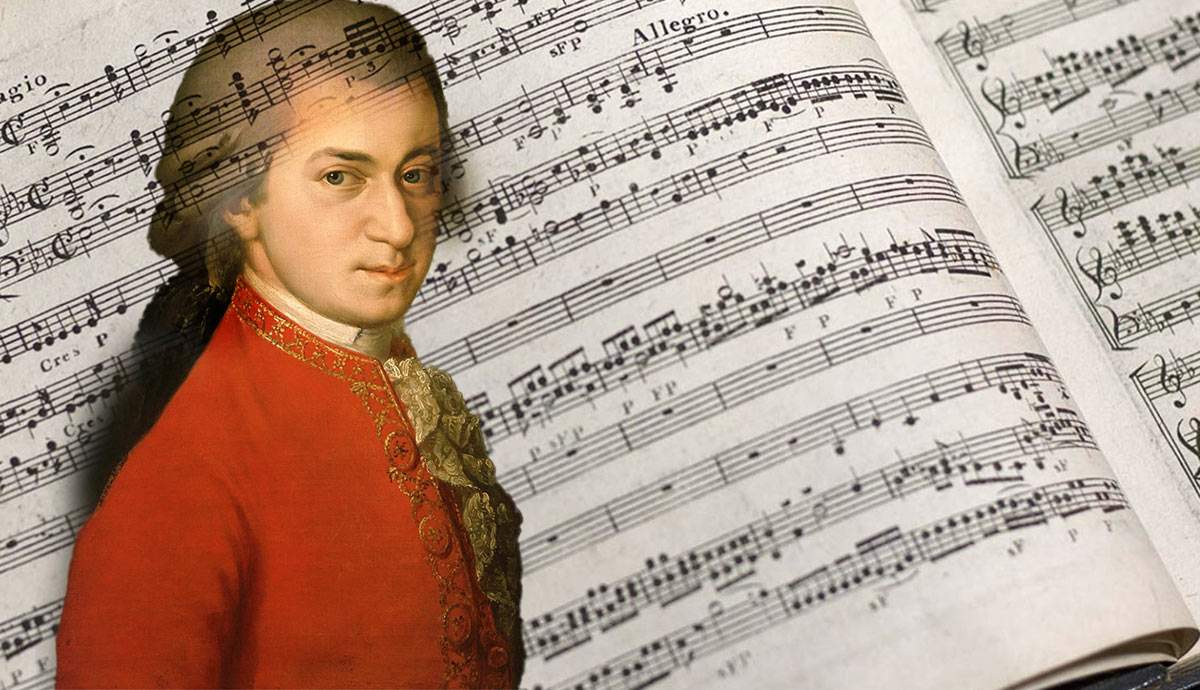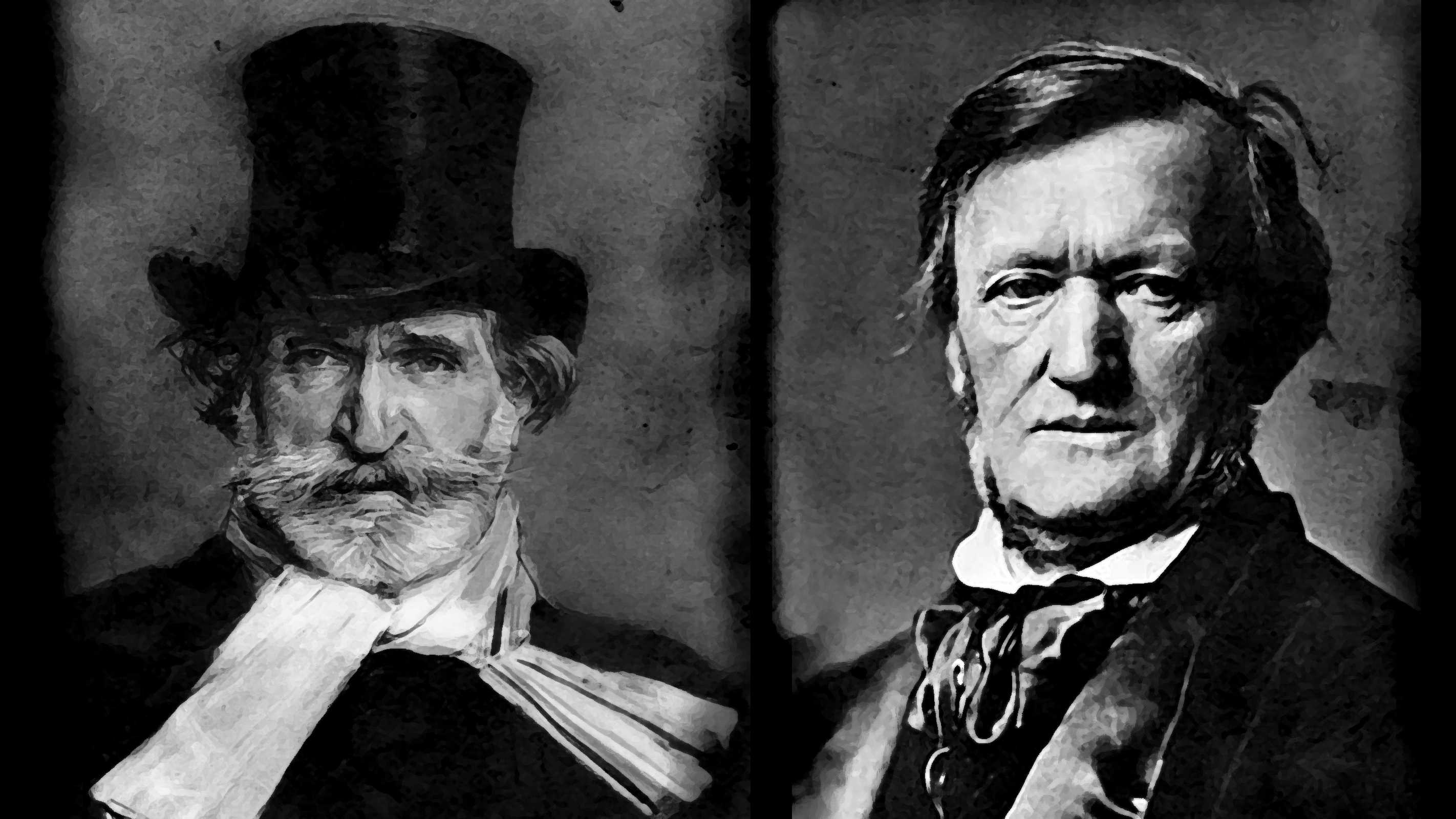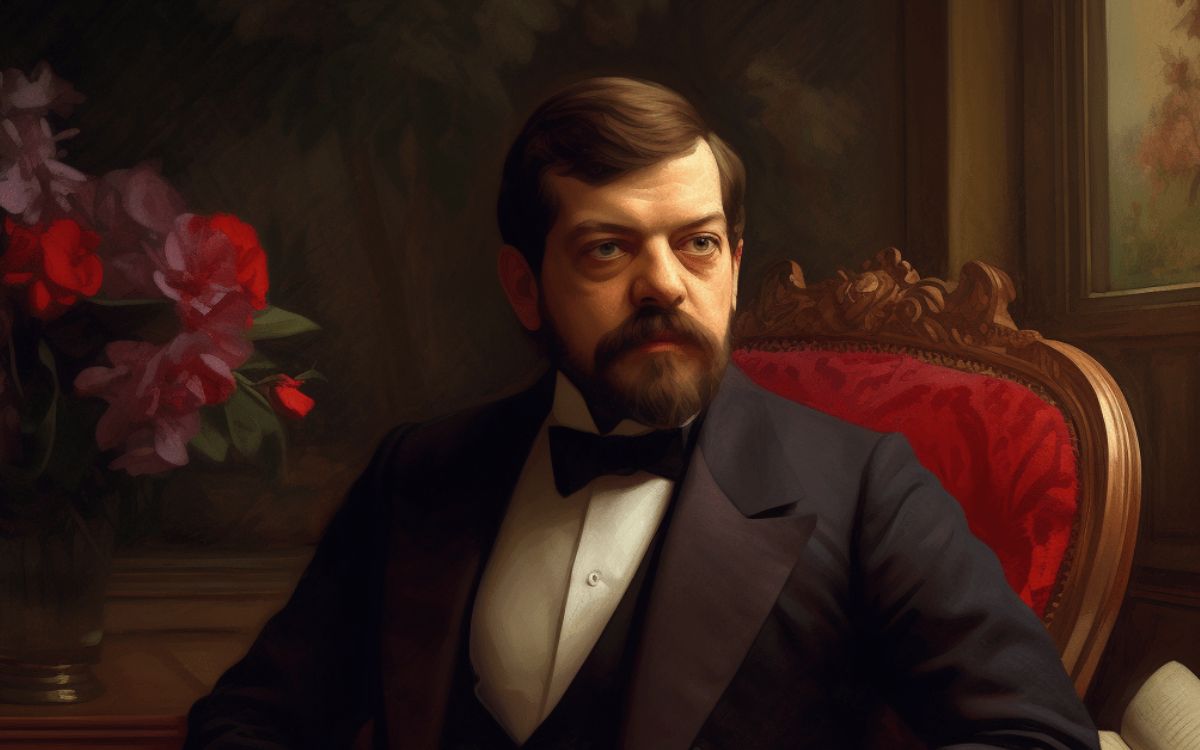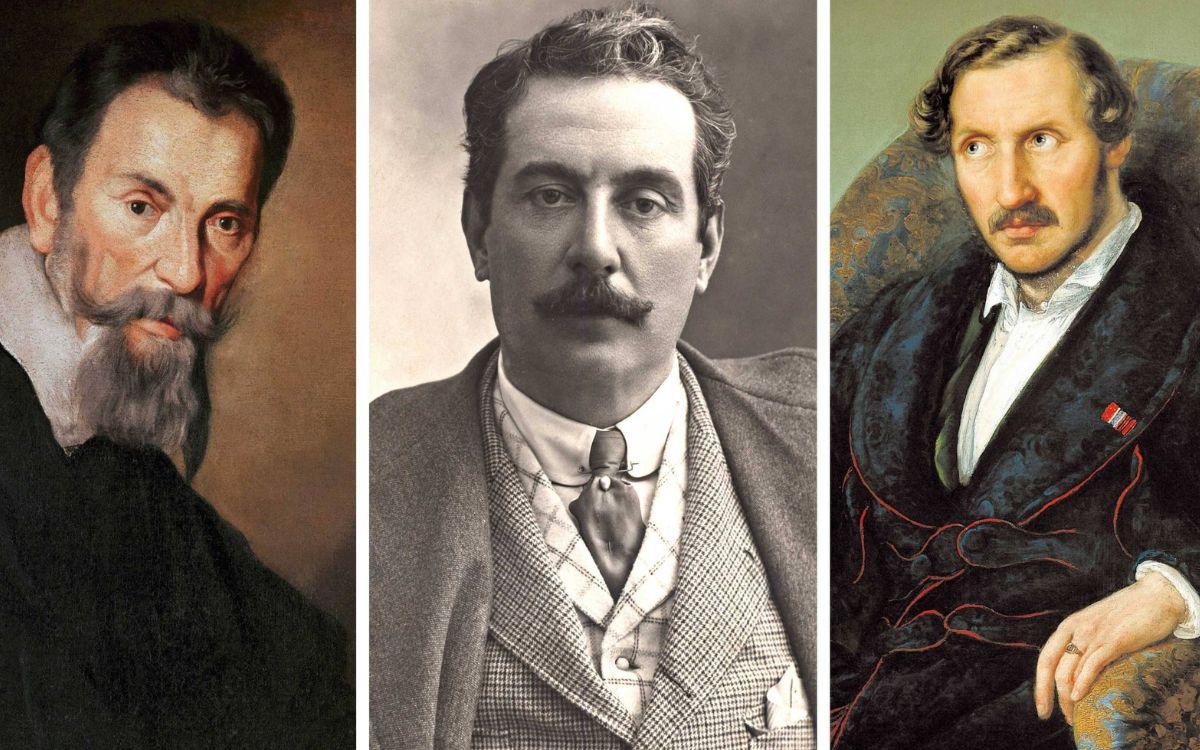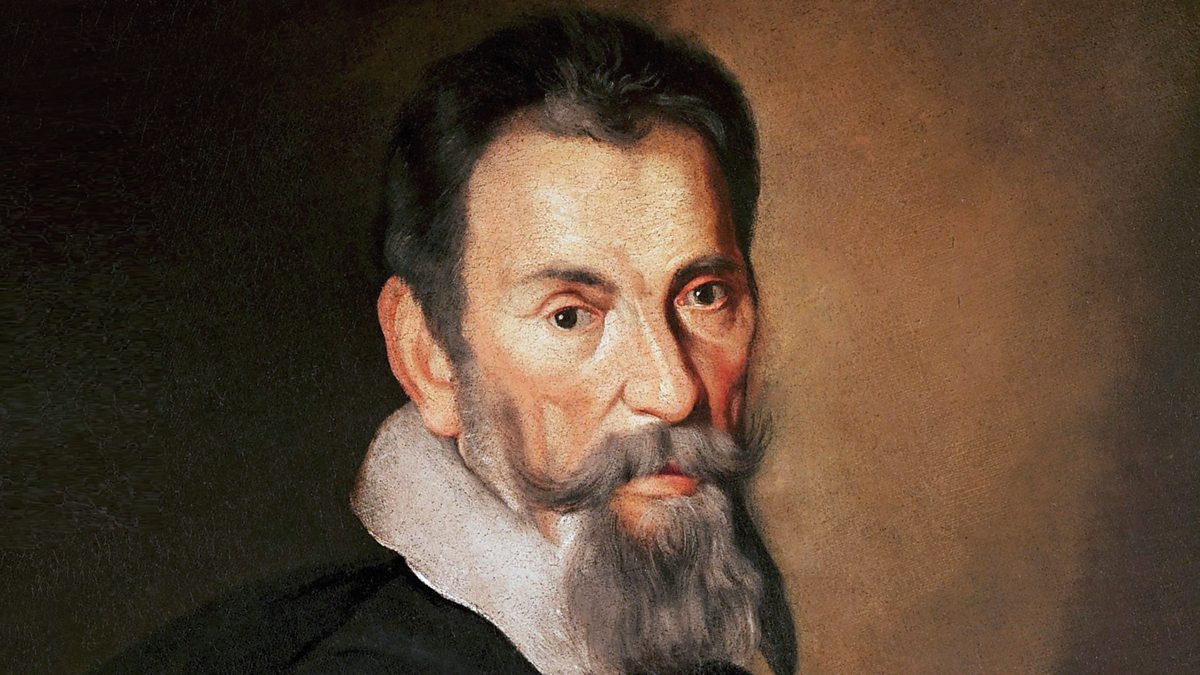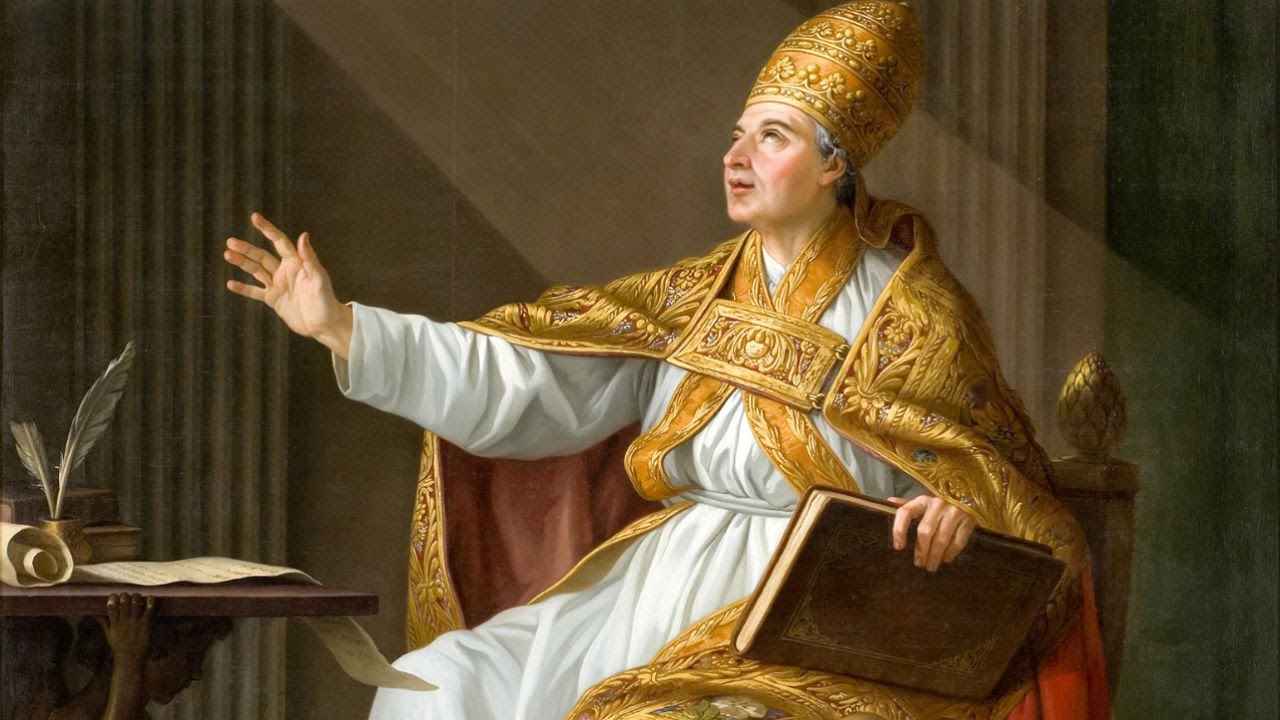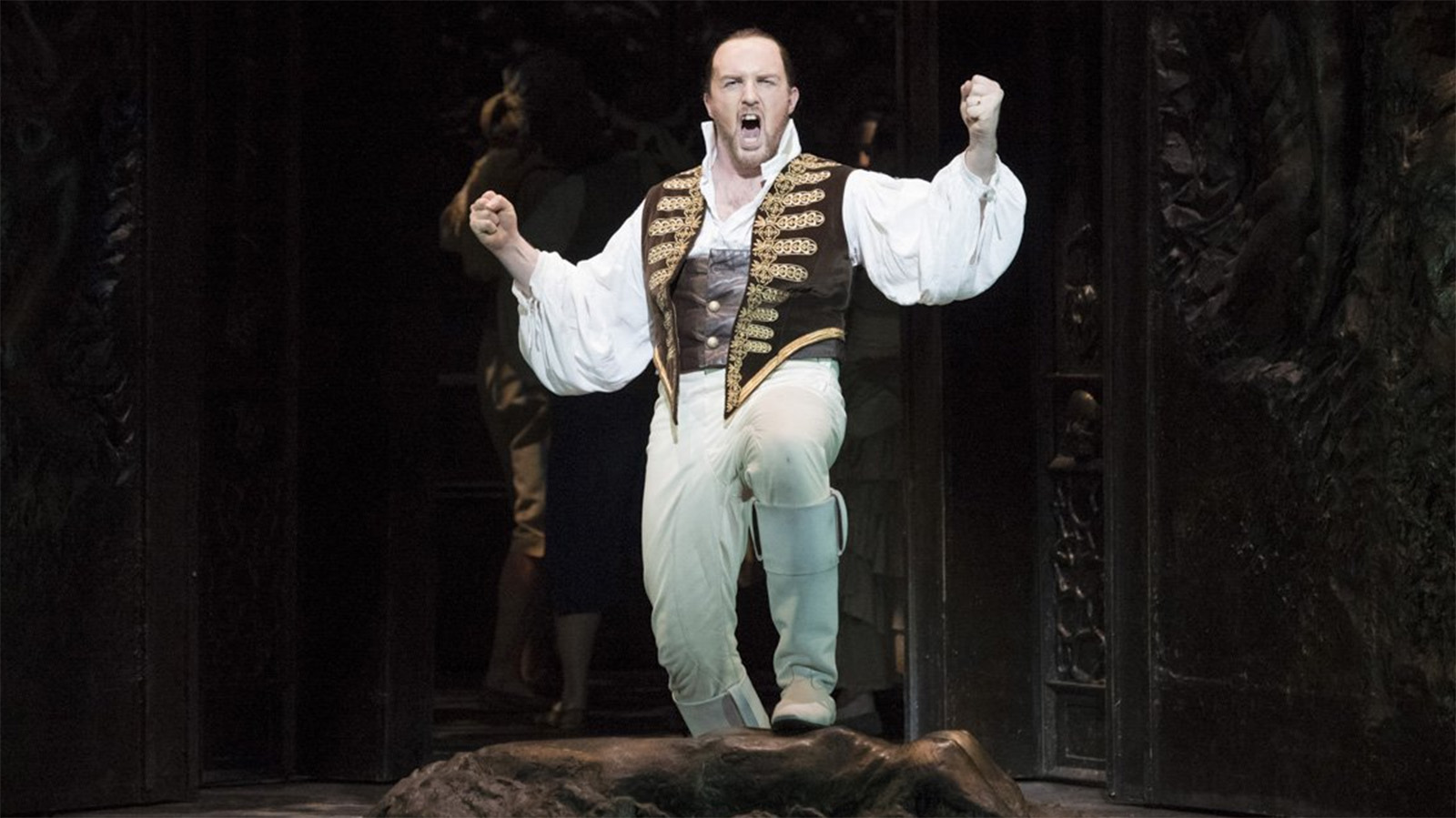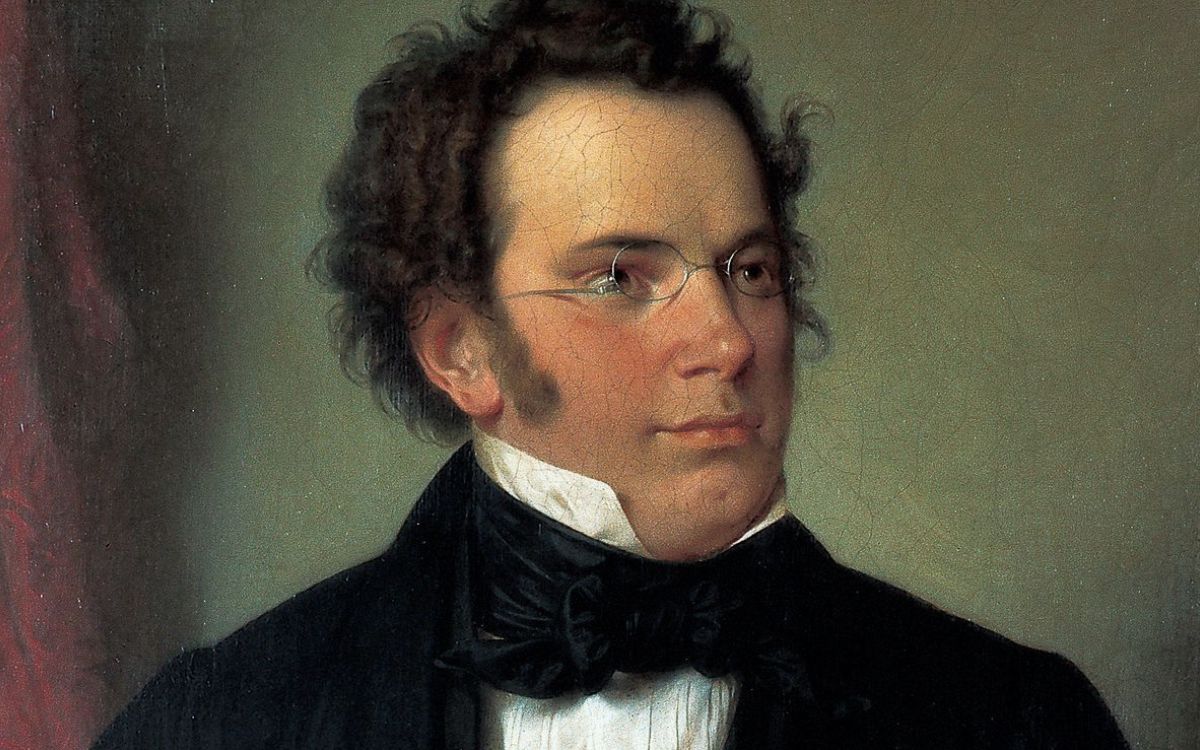Home>Production & Technology>Composer>Who Was The Composer Of The Opera Carmen
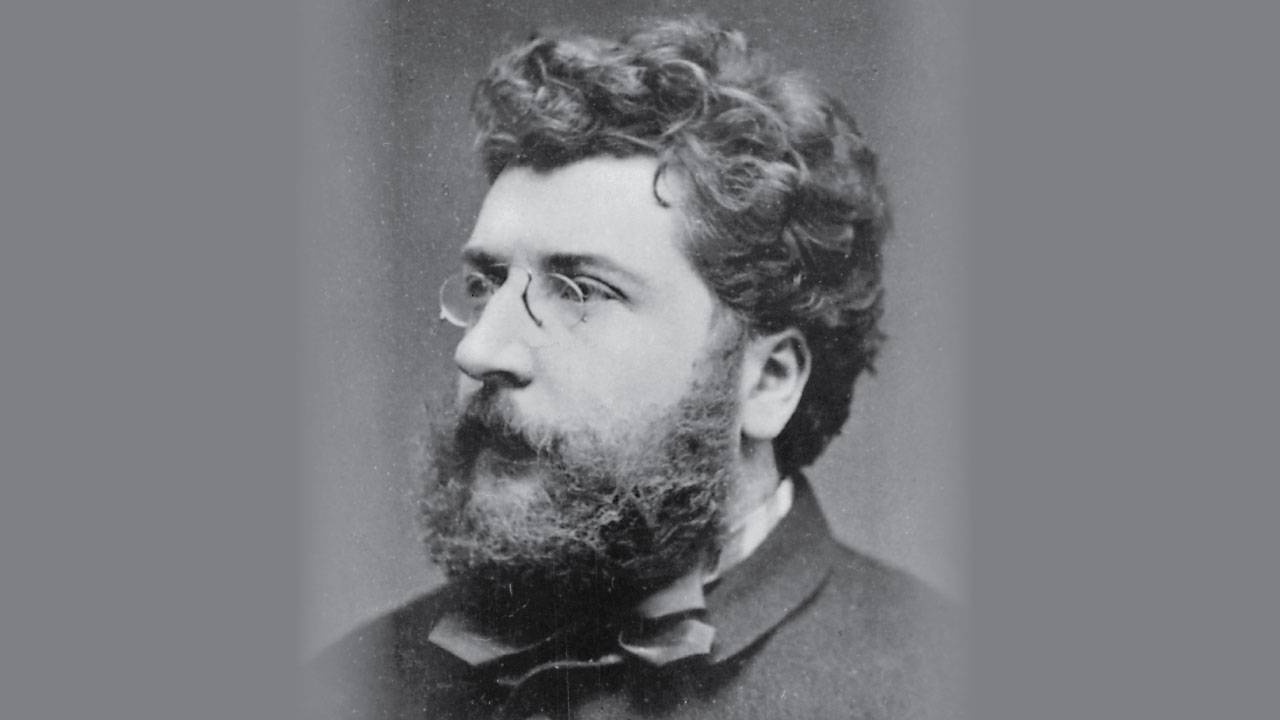

Composer
Who Was The Composer Of The Opera Carmen
Modified: January 22, 2024
Discover the composer of the famous opera Carmen and explore the musical genius behind this iconic masterpiece. Uncover the story of the composer and the inspiration that brought this timeless opera to life.
(Many of the links in this article redirect to a specific reviewed product. Your purchase of these products through affiliate links helps to generate commission for AudioLover.com, at no extra cost. Learn more)
Table of Contents
Introduction
The world of opera is rich with beautiful compositions that have captivated audiences for centuries. One such opera that continues to enthrall and mesmerize is Carmen. Considered a masterpiece of the genre, Carmen tells a gripping story of love, passion, and tragedy. Behind this iconic opera stands a talented composer, whose genius brought the characters to life and created a timeless masterpiece.
In this article, we will delve into the life and works of the composer of Carmen, shedding light on the man behind the music and exploring the enduring legacy of this renowned opera. From his early beginnings to the critical reception and impact of Carmen, we will uncover the fascinating journey of this esteemed composer.
Join us as we step into the world of Georges Bizet, the creative force behind one of the most beloved operas of all time. Through this exploration, we hope to deepen our appreciation for the artistry and genius that went into the creation of Carmen, and gain new insights into the life and work of this remarkable composer.
Background of the Opera Carmen
Carmen, a French opera in four acts, was composed by Georges Bizet and premiered in Paris in 1875. The libretto, written by Henri Meilhac and Ludovic Halévy, is based on the novella of the same name by Prosper Mérimée. The opera is set in the colorful backdrop of Seville, Spain, and tells the story of Carmen, a seductive gypsy woman whose free-spirited nature and allure captivate all those around her.
At the time of its premiere, Carmen was met with mixed reactions from audiences and critics. Its unconventional storyline, exploring themes of love, obsession, and destiny, challenged the traditional opera conventions of the time. However, over the years, Carmen has gained immense popularity and has become one of the most frequently performed operas in the world.
The opera’s enduring appeal lies in its captivating characters, beautiful melodies, and dramatic intensity. Bizet masterfully weaves together a rich tapestry of music and emotions, bringing to life the passionate love triangle between Carmen, soldier Don José, and the glamorous bullfighter Escamillo. The conflicts and tensions that arise from these relationships drive the narrative and give Carmen its timeless resonance.
Additionally, Carmen is known for its fusion of musical styles, incorporating elements of Spanish folk music, dance rhythms, and vibrant melodies. This unique blend of influences contributes to the opera’s distinctive flair and adds to its appeal amongst audiences worldwide.
Despite Bizet’s untimely death at the age of 36, shortly after Carmen’s premiere, his legacy with this opera has endured. Carmen continues to be performed in opera houses around the world, captivating audiences with its captivating storyline and unforgettable music.
The Composer’s Early Life and Musical Training
Georges Bizet was born on October 25, 1838, in Paris, France. He showed an early inclination towards music and began receiving piano lessons at the age of four. Recognizing his prodigious talent, his parents enrolled him in the prestigious Paris Conservatoire at the age of ten.
At the Conservatoire, Bizet studied composition under the tutelage of Charles Gounod, best known for his opera Faust. Under Gounod’s guidance, Bizet honed his composition skills and developed a deep appreciation for opera. During his time at the Conservatoire, Bizet showcased his exceptional abilities, earning numerous awards and accolades for his musical prowess.
In addition to his studies, Bizet immersed himself in the vibrant cultural scene of Paris. He attended concerts, opera performances, and socialized with renowned artists and musicians of the time, such as Camille Saint-Saëns and Édouard Lalo. These experiences exposed him to a wide range of musical styles and influences, shaping his own unique musical voice.
After completing his studies at the Conservatoire, Bizet embarked on a career as a composer and music teacher. His early works received critical acclaim, showcasing his talent for creating expressive melodies and rich harmonies.
However, it was with Carmen, composed in his early thirties, that Bizet truly made his mark on the world of opera. The skills and experience gained over the years culminated in this masterpiece, demonstrating Bizet’s maturation as a composer and his ability to create music that resonated deeply with audiences.
It is worth noting that Bizet’s success with Carmen came at a great personal cost. The opera’s controversial themes and unconventional portrayal of passionate love and sexuality faced significant backlash from conservative audiences and critics. Bizet, already a sensitive and self-critical artist, was deeply affected by the criticism, and its initial reception took a toll on his mental and physical well-being.
Despite the challenges and personal struggles, Bizet’s contribution to the world of music cannot be overstated. His innovative compositions and his unique approach to blending various musical influences continue to inspire generations of musicians and composers.
Georges Bizet: The Man Behind the Opera
Georges Bizet, the brilliant composer behind Carmen, was a man of immense talent and passion for music. Despite his relatively short life, Bizet left an indelible mark on the world of opera with his innovative compositions and his ability to evoke deep emotions through his music.
Bizet was known for his dedication to his craft and his unwavering pursuit of artistic excellence. He approached each composition with meticulous attention to detail, spending hours perfecting melodies, harmonies, and orchestrations. His commitment to creating compelling and evocative music can be heard throughout Carmen, as he masterfully weaves together various musical elements to bring the story and characters to life.
While Carmen is undoubtedly Bizet’s most celebrated work, it is important to note that he composed a wide range of works, including symphonies, piano music, and operettas. Although some of these compositions did not receive the recognition they deserved during his lifetime, they exemplify his versatility as a composer and his extraordinary ability to create music in different genres.
Bizet was not only a composer but also an accomplished pianist. His piano skills were highly regarded, and he often performed in private salons and social gatherings. It was through his performances that Bizet was able to connect with other artists and musicians, further expanding his musical horizons and fostering collaborations.
Despite his talent and creative genius, Bizet struggled financially throughout his life. He relied heavily on commissions and teaching positions to make ends meet, and his financial hardship often overshadowed his artistic accomplishments. It was only after his death that his work began to receive the recognition it deserved, with Carmen becoming a staple in the operatic repertoire.
On June 3, 1875, just three months after the premiere of Carmen, Georges Bizet tragically passed away at the age of 36. His death came as a shock to the music world, leaving behind a sense of sorrow for the loss of such a promising talent.
Though his life was cut short, Bizet’s legacy lives on through his timeless compositions, particularly Carmen. His ability to capture the essence of human emotion and translate it into music continues to resonate with audiences today. Through his work, Bizet has solidified his place in history as one of the most influential composers of the Romantic era and left a lasting impact on the world of opera.
Carmen: A Synopsis of the Opera
Carmen, a four-act opera by Georges Bizet, tells the gripping and tragic tale of love, obsession, and destiny. Set in Seville, Spain, the opera revolves around the fiery and independent gypsy woman, Carmen, whose allure captures the hearts of men.
Act 1 introduces us to Don José, a soldier stationed in Seville, who becomes infatuated with Carmen. Despite being engaged to Micaëla, Don José falls under Carmen’s spell after she seduces him with her irresistible charm. Their passionate affair causes Don José to abandon his military duties and join a band of smugglers led by Carmen’s lover, Escamillo.
In Act 2, we find Carmen and her fellow gypsy companions at a tavern, where Carmen’s ex-lover, the toreador Escamillo, arrives. He declares his love for Carmen, stirring jealousy in both Don José and the other men present. Tensions rise as the men engage in a fierce confrontation, further fueling Don José’s obsession with Carmen.
Act 3 takes place in the smugglers’ mountain hideout. Micaëla, who still loves Don José, ventures into the dangerous territory to convince him to return home. However, her attempt is futile, as Don José’s love for Carmen has consumed him entirely. When news arrives that Carmen and Escamillo plan to leave for the bullfighting arena in Seville, Don José’s desperation reaches its peak.
In the gripping final act, set outside the bullring in Seville, Carmen and Escamillo enjoy the festivities while Don José lurks in the shadows. As Carmen rejects his pleas to return to him, Don José’s jealousy and rage explode. In a fit of passion and desperation, he stabs Carmen, ending her life and sealing his own fate.
Carmen is a tragic tale that explores themes of love, freedom, and fate. Bizet’s masterful composition captures the intense emotions and conflicts that arise from the complex relationships between the characters. The opera’s iconic melodies, such as the Habanera and the Toreador Song, further immerse the audience in the vibrant and passionate world of Carmen.
Through its vivid portrayal of love and obsession, Carmen continues to captivate audiences with its timeless appeal. The opera’s dramatic storyline and memorable music have solidified its place as one of the greatest works in the operatic repertoire.
Critical Reception and Success of Carmen
When Carmen premiered at the Opéra-Comique in Paris on March 3, 1875, it received a mixed response from both critics and the audience. The unconventional storyline, which delved into themes of passion and sexuality, challenged the operatic conventions of the time, leading to some initial skepticism.
Some critics found Carmen to be too daring and provocative, criticizing its portrayal of a strong, independent female lead and the perceived immorality of the characters. Others, however, recognized the brilliance of Bizet’s composition and the innovative nature of the opera.
Despite the initial mixed reception, Carmen quickly gained popularity and achieved tremendous success in the years following its premiere. Audiences were captivated by the compelling characters, the emotional depth of the music, and the vibrant and dramatic storytelling.
Carmen’s success can be attributed to the timeless themes it explores—love, jealousy, and fate—combined with Bizet’s ability to create memorable melodies and passionate orchestrations. The opera’s incorporation of Spanish musical elements and its fusion of different styles helped to create a unique and captivating experience for audiences.
Over time, Carmen’s reputation grew, and it became one of the most performed operas in the world. Its influence extended beyond the realm of opera, permeating popular culture, with its melodies being adapted into songs, used in commercials, and featured in films and television shows.
Today, Carmen remains a beloved and celebrated opera, cherished for its unforgettable music and compelling storytelling. Its impact on the world of opera cannot be overstated, as it paved the way for more daring and innovative works to come.
The success of Carmen also played a crucial role in solidifying Bizet’s legacy as one of the greatest composers of the Romantic era. Despite his untimely death shortly after the opera’s premiere, Bizet’s contributions to the world of music continue to be cherished and celebrated.
As Carmen continues to be performed in opera houses around the world, it serves as a testament to Bizet’s mastery as a composer and the enduring power of his music. Its universal themes and timeless appeal ensure that Carmen will continue to captivate audiences for generations to come.
Bizet’s Legacy and Impact on Music
Georges Bizet’s impact on the world of music extends far beyond his acclaimed opera Carmen. Despite his tragically short life, Bizet’s compositions and artistic contributions have left a lasting legacy that continues to shape the landscape of classical music.
Bizet’s innovative approach to composition and his ability to combine different musical styles and influences set him apart from his contemporaries. His works, including symphonies, piano music, and operas, showcase his versatility as a composer and his ability to create music that resonates with audiences.
However, it is Bizet’s opera Carmen that remains his most enduring and influential work. Not only did Carmen challenge the conventions of opera at the time with its bold themes and unconventional characters, but it also paved the way for the development of new operatic styles and genres.
Thanks to Carmen’s popularity, other composers in subsequent generations were inspired to explore new forms of storytelling and experiment with different musical elements. Bizet’s innovative compositions and his ability to capture emotions through music have influenced countless composers who followed in his footsteps.
Beyond the world of opera, Bizet’s legacy is also evident in his contributions to orchestral music. His symphonic compositions, such as his Symphony in C, showcase his extraordinary talent for crafting memorable melodies and orchestrations that have stood the test of time.
Bizet’s influence can be felt in the works of composers who came after him, such as Maurice Ravel and Claude Debussy. His ability to evoke emotion through music and his mastery of orchestration have left an indelible mark on French classical music.
Furthermore, Bizet’s fusion of different musical styles in Carmen, particularly Spanish folk music and dance rhythms, has had a lasting impact on the development of world music. His bold experimentation with blending cultural influences helped to expand the musical vocabulary of future composers and opened doors to new possibilities in composition.
It is important to acknowledge that Bizet’s true musical genius was not fully recognized until after his death. His untimely passing at the age of 36 meant that he did not witness the full extent of his impact on the music world. However, his contributions and innovations continue to be celebrated, and his influence on opera and classical music remains undeniable.
Today, Georges Bizet is regarded as one of the most important composers of the Romantic era, with his works continuing to be performed and cherished worldwide. His ability to create deeply emotional and evocative music, combined with his innovative approach to composition, ensure that his legacy as a musical pioneer will endure for generations to come.
Conclusion
Georges Bizet, the composer behind the iconic opera Carmen, has left an indelible mark on the world of music. From his early days of musical training to his untimely death, Bizet’s life was filled with dedication to his craft and a relentless pursuit of artistic excellence.
Carmen, with its timeless story and captivating music, remains one of the most beloved operas in the world. Despite its mixed reception at the time of its premiere, Carmen’s popularity soared, solidifying its place in the operatic repertoire and showcasing Bizet’s mastery as a composer.
Bizet’s legacy extends beyond Carmen and encompasses his contributions to classical music as a whole. His ability to blend various musical influences and his innovative approach to composition have inspired subsequent generations of composers, leaving an enduring influence on the development of the genre.
While Bizet’s life may have been cut short, his impact on the world of music cannot be understated. His legacy lives on through his compositions, which continue to be performed and celebrated globally, and his ability to evoke deep emotions through melody and orchestration.
Georges Bizet’s dedication and passion for music have left an indelible legacy that transcends time and place. His compositions, particularly Carmen, have stood the test of time, captivating audiences with their compelling stories and powerful melodies.
As we delve into the intricacies of Carmen and explore the life and work of Bizet, we gain a deeper appreciation for the artistry and genius of this remarkable composer. Through his music, Bizet continues to connect with audiences, reminding us of the power of music to convey the human experience in all its beauty and complexity.
In conclusion, Georges Bizet’s contributions to opera and classical music have left an enduring impact on the world. His legacy lives on through his timeless compositions, which continue to captivate audiences and inspire future generations. With Carmen as his magnum opus, Bizet solidified his place as one of the great composers of the Romantic era and his importance in the annals of music history.

